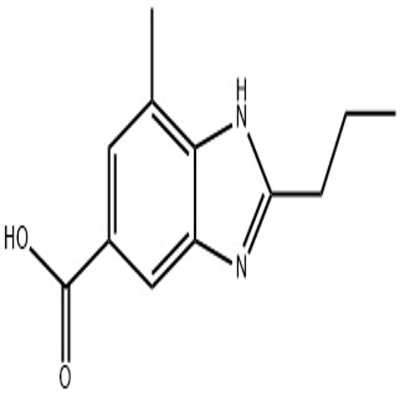-
Categories
-
Pharmaceutical Intermediates
-
Active Pharmaceutical Ingredients
-
Food Additives
- Industrial Coatings
- Agrochemicals
- Dyes and Pigments
- Surfactant
- Flavors and Fragrances
- Chemical Reagents
- Catalyst and Auxiliary
- Natural Products
- Inorganic Chemistry
-
Organic Chemistry
-
Biochemical Engineering
- Analytical Chemistry
-
Cosmetic Ingredient
- Water Treatment Chemical
-
Pharmaceutical Intermediates
Promotion
ECHEMI Mall
Wholesale
Weekly Price
Exhibition
News
-
Trade Service
The Production Process of 4-(2-Pyridinyl)-2-(trifluoromethyl)pyrimidine in the Chemical Industry
4-(2-Pyridinyl)-2-(trifluoromethyl)pyrimidine, also known as 2-[(2S)-2-[(4S)-4-(difluoromethyl)-2-oxo-1,3-oxazolidin-3-yl]pyridin-4-yl]-N-(trifluoromethyl)acetamide, is a synthetic chemical compound that is commonly used in the pharmaceutical and agricultural industries.
It is an important intermediate in the production of certain types of medications and pesticides.
The production process of 4-(2-Pyridinyl)-2-(trifluoromethyl)pyrimidine involves several steps, including synthesis, purification, and isolation.
Each step requires careful attention to detail and the use of specialized equipment and chemicals.
Step 1: Synthesis
The synthesis of 4-(2-Pyridinyl)-2-(trifluoromethyl)pyrimidine begins with the reaction of 2-oxo-1,3-oxazolidin-3-one with 2-bromopropane in the presence of a Lewis acid catalyst, such as aluminum chloride.
This reaction results in the formation of 2-(2-bromopropyl)-1,3-oxazolidin-3-one.
Next, a coupling reaction is performed using 2-(2-bromopropyl)-1,3-oxazolidin-3-one and 2-pyridine-1-carboxaldehyde in the presence of a condensation agent, such as dicyclohexylcarbodiimide (DCC) and hydroxyquinoline.
This results in the formation of 2-(2-pyridinyl)-1,3-oxazolidin-3-one.
Step 2: Purification
After the synthesis step, the product is purified through a series of chromatography steps using different types of columns and eluents.
This step is necessary to remove any impurities that may have been introduced during the synthesis process and to obtain a pure sample of 4-(2-Pyridinyl)-2-(trifluoromethyl)pyrimidine.
Step 3: Isolation
After purification, the product is isolated through crystallization.
This involves dissolving the purified product in a suitable solvent, such as ethanol or methanol, and allowing the solvent to slowly evaporate.
The resulting crystals are then collected and dried, resulting in a pure sample of 4-(2-Pyridinyl)-2-(trifluoromethyl)pyrimidine.
Quality Control
To ensure the quality of the final product, various tests and analyses are performed at each step of the production process.
These include physical and chemical tests, such as melting point, boiling point, solubility, and spectroscopy.
The production process of 4-(2-Pyridinyl)-2-(trifluoromethyl)pyrimidine is a complex and multi-step process that requires a high level of expertise and specialized equipment.
The ability to produce a pure and consistent product is critical to the success of the pharmaceutical and agricultural industries, which rely on this compound as an important intermediate in the production of certain medications and pesticides.





![benzyl N-{2-[4-(4,4,5,5-tetramethyl-1,3,2-dioxaborolan-2-yl)phenyl]ethyl}carbamate](https://file.echemi.com/fileManage/upload/goodpicture/20210823/m20210823171124543.jpg)

